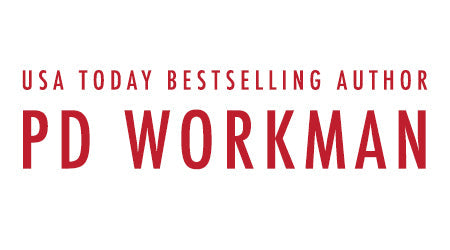Peril in the Blooms - PP15 Accessibility Pack
Peril in the Blooms - PP15 Accessibility Pack
Couldn't load pickup availability
Discover the secrets hidden among Calgary’s blossoms in Botanical Garden Mystery.
Fatal Flora
A vibrant garden. A shocking murder. The city is abuzz with excitement over the grand reopening of its newly renovated botanical gardens. When a botanist is gunned down at the grand opening of a new botanical garden, Margie must dig deep to unearth a killer
Was the murder a random act of violence, or was it a carefully plotted scheme involving a deadly poison? As Margie delves deeper, she uncovers a world of cutthroat competition and controversial research. Could someone have wanted the victim silenced to protect their own secrets?
In a heart-pounding race against time, Margie tries to make sense of the clues, putting her and others at risk. Can she catch the killer before they strike again?
Peril Among the Blooms is a captivating mystery that will keep you guessing until the final, shocking revelation. Perfect for fans of intricate plots, complex characters, and suspenseful investigations.
Praise for the series:
⭐️⭐️⭐️⭐️⭐️ The writing is excellent, the plot is nice and twisty and the the characters and situations are believable. I enjoyed this book and am looking forward to seeing where she takes these new characters.
⭐️⭐️⭐️⭐️⭐️ This is another well-written, briskly-paced mystery featuring great characters, lots of interesting glimpses into Canada’s Indigenous culture, and a satisfying resolution all wrapped up in delightful quick-read police procedural by an author who could make a description of drying paint sound fascinating.
Looking for a police procedural set in picturesque Canada? Let Award-winning and Bestselling Author P.D. Workman take you to her favourite Calgary parks, as Métis detective Margie Patenaude investigates a murder in this fast-paced new series.
These short mysteries are just right for those days when you could use a break from your busy life.
Take a walk in a Calgary park with Parks Pat.
Unearth the mystery today—perfect for readers who crave suspenseful plots against richly drawn settings!
Returns
Returns
All sales are final.
If you have accidentally purchased the same ebook twice, please contact me and we will work it out with a refund or store credit.
Share

Accessibility Packs
Accessibility Packs are not yet available for every book.
If available, an Accessibility Pack contains three files:
- An eBook copy
- A pdf copy in OpenDyslexia font with other accessibility features
- An autonarrated (text to speech) audiobook in mp3 format
ACCESSIBILITY FEATURES OF EBOOK (VARIES BY DEVICE):
- Choose your typeface
- Change the font size
- Set your line spacing
- Light, dark, or sepia themes
ACCESSIBILITY FEATURES OF PDF
- OpenDyslexic font is designed to be more readable for those with dyslexia
- Rag right—not fully justified—to eliminate gaps between words
- Paragraphs not indented, separated by extra space
- No hyphenation
AUTO-NARRATED AUDIOBOOKS
Audiobooks allow readers to listen to a book rather than or simultaneously with reading the eBook or PDF file. They are also helpful if you are someone who needs to move around while learning.
Standard audiobooks are expensive to produce. There is nothing like a voice actor narrating a book. He can add nuance and humour and many other benefits to the audiobook. I still want to produce more human narrated audiobooks. However, in order to bring more of my catalog to you in audio form, I have used text-to-speech, computer-narration technology. This allows me to reach more readers who need assistance with reading. While auto-narration is improving, these audiobooks do sound robotic and do not contain the nuance of human voice narration. Some readers will find this too distracting, but for others, it is just the tool they need to help them enjoy more books.
Collapsible content
Click to Read Sample
Chapter 1
It was a beautiful day. The morning was pleasant, the heat of the day not yet kicking in. Margie was sure that by midafternoon, it would be too hot to spend much time outside, but the ceremonies would be over by then, and she would be back at home or at the air-conditioned office if she decided to go in for the afternoon.
Moushoom, sitting in his wheelchair with a blanket across his lap, would be back to his temperature-controlled bedroom. She was glad that they had decided to go to the reopening of the botanical gardens together. Moushoom always seemed ten times better after spending time outside in the fresh air. Like Antaeus, the Titan in Greek mythology who gained strength from contact with the earth. That was Moushoom, gathering strength when he was in contact with nature. He remembered all the old stories, all that he had learned at the sides of his parents and grandparents back before modern technology.
When she had heard about the opening of the newly refreshed gardens at Riley Park, she hadn’t thought much of it initially. What she remembered of Riley Park from when she was a child visiting Calgary was the wading pool.
Until then, a “wading pool” had meant that little round, blow-up kiddie pool that her family had filled with the garden hose. Too cold to put her feet into when it was first filled up, and then warming in the sun. The pristine water getting clouded with leaves and grass clippings and bugs as she and her cousins hopped in and out of it throughout the day.
The wading pool at Riley Park was something different altogether. It was a vast concrete structure, constantly filtered and refilled like a swimming pool, with all those curves and dips and hills, filled with laughing, shrieking children and lounging adults trying to escape the heat. It had seemed enormous to her at the time, and she wondered whether her memory was accurate.
Back then, she hadn’t even been aware of any gardens. There had been a small playground with a swing set, slide, and rusting animal shapes mounted on springs. There were huge trees and a lone squirrel that ran along the telephone wires back before the gray squirrel population in Calgary had exploded and squirrels were everywhere. She didn’t remember any gardens.
Now there was a large, colorful playground full of climbing equipment, slides, and a saucer swing. And there was an adult playground with parallel bars, a climbing net, and various other equipment that Margie would have to read the instructions to know how to use.
“We used to come here to watch cricket,” Moushoom told her as she pushed his wheelchair along the pathway. Margie had been staring at the different varieties of trees, trying to identify each one. She had no idea what most of them were. She identified an oak tree by the wavy shape of its leaves. And a maple. But most of them, she was clueless about. One of them was full of red fruit that looked like cherries. Did cherries grow in Alberta? Big ones like that, not the little chokecherries she was familiar with?
Stella strained on the leash, wanting to go everywhere, to smell everything. There was a whole world of sights and scents that needed to be cataloged.
“Cricket?” Margie repeated, wondering if Moushoom was feeling all right. Who would watch cricket in Calgary? She wondered whether he meant a different sport, or if he had been watching cricket on TV at the home and was confusing it with reality.
“Yes. Big cricket pitch over there,” Moushoom waved with one hand.
“Oh, is there?”
There was a large green field. Margie supposed it could have been used for cricket or soccer. But there were no stands. No soccer goalposts. She couldn’t see any field of play marked out in the grass.
They made their way around the trees on the paved pathway, and the wading pool came into view. It was huge, with curves sprawling across the park. There was a splash park that hadn’t been there when she was a child. At least, not that she could remember. She was glad the wading pool really was big, and that it hadn’t just been a childhood memory with everything out of scale.
“Wow, look at it. I can’t believe how big it is.”
“We brought so many grandchildren and cousins to this pool,” Moushoom remembered. “They always had a great time.”
“Unless there were wasps,” Margie recalled. “I remember one year there was a huge number of wasps. They were everywhere.”
“Did you get stung?”
“No.”
It was funny that the wading pool had not triggered Margie’s fear of the water. But then, it wasn’t more than two feet deep anywhere. She didn’t have to worry about drowning in it, about not being able to touch the bottom, the water closing over her head. It had been a fun, safe place to play, no more dangerous than the bathtub.
The pathway wound around the pool to the other side, where Margie saw a clubhouse of some kind.
“Cricket,” Moushoom repeated.
Margie pushed the wheelchair around the building.
CALGARY & DISTRICT
CRICKET LEAGUE
(1908)
Margie laughed. “Cricket,” she agreed. “Did you like the games? Were they fun to watch?”
He nodded. “Some of those bowlers… you wouldn’t believe how fast they can throw.”
Margie could see someone practicing, throwing ball after ball. She wouldn’t have wanted to be in the path of that cannon.
“It looks like the opening is happening over here,” she motioned to a flat area where folding chairs had been set up. There was a podium at the front and a few men were setting up speakers.
“Push me right up to the front,” Moushoom instructed. “I want to be able to see everything.”
“Okay,” Margie laughed and agreed. There would be no sitting in the back and staying anonymous today.
Chapter 2
Tents and shades had been set up around the gardens to keep them out of sight until the big reveal. But other smaller gardens were already visible. They were filled with a riot of color, orange and red and purple and yellow. Margie stopped beside one to take in the individual flowers and watch the bees buzzing around them.
“These are amazing,” she said. “Look at all of the different kinds of flowers.”
“Some of these were in my kokum’s garden,” Moushoom told her, speaking of his own grandmother. Margie’s great-great-grandmother. Margie had only seen pictures of her; they had never met. Moushoom’s mother had been alive when Margie was born, but had died soon after. Margie had no recollection of her either. She only came alive in Moushoom’s stories.
“She knew her medicine,” Moushoom told Margie. “She always had just the herbs the family needed close at hand. And enough for friends and neighbors, too. She took care of people.”
“How did she know how to use them? From her mother?”
“Many generations of mothers,” Moushoom agreed. “All of the stories and herblore passed down through the generations. There was no pharmacy to run to then, only to Mother Earth. She taught us what we needed to know.”
Margie maneuvered Moushoom’s wheelchair across the grass. It was a lot more difficult than using the paved pathway, but she didn’t have far to go.
“Can I put my grandfather here?” she asked a pinch-faced middle-aged woman who was giving the sound men directions.
The woman looked at her, frowning, and then around the chairs that had been set up. “Didn’t anyone leave space for wheelchairs?” she demanded.
The other busy employees in matching blue t-shirts looked around at each other, shaking heads.
“Oh, good grief.” The woman marched over and pulled a chair out of line at either end of the front two rows to make space for wheelchair seating. “Please. If that isn’t enough space, take another one out,” she told Margie.
Margie nodded her thanks and pushed Moushoom’s wheelchair into place. She tied Stella’s leash to the arm of the wheelchair. The woman gave more instructions to the various employees working on getting everything set up. They seemed to be running a little late, as people were already gathering and talking.
The woman finished and approached Margie. She looked at Moushoom in the wheelchair.
“Is this one of our special guests?” she asked. “I am Dr. Eliza Thorndyke.” She offered a dry, thin hand for each of them to shake.
“No, we just came for the opening,” Margie told her. “It looked interesting and it’s been forever since I have been to Riley Park, so we thought we would come along and have a look.”
“Well, welcome, I’m glad you could make it.” Her eyes kept returning to Moushoom. “We have a land acknowledgment at the beginning of the ceremony. I would like to make sure that your people are mentioned. What tribe…?”
“We are Métis,” Margie said, her cheeks warming. This was not territory she had navigated often.
“We acknowledge Treaty 7. Are you included in Treaty 7?”
“No,” Moushoom said strongly. “We did not sign the Treaty.”
Thorndyke nodded. “Right, of course. I should know that, I’m sure. Should I just include… the Métis people, or is there a specific organization…?”
“We are Métis,” Moushoom said. “We don’t need a number.”
Margie was aware that Calgary fell into District 5 and 6, but she didn’t know which Riley Park was in. Besides, the districts were not the way the Métis identified. They were simply for governance.
“I’ll be sure to include you in the land acknowledgment,” Thorndyke said. She scurried to the podium and flipped through pages, a pen held in one hand as she scowled down at what was written and scratched in some changes. Margie looked at Moushoom, and he shrugged. It was weird how these land acknowledgments had become a thing at every public event. Margie wasn’t sure how she felt about them or if they had any real meaning.
After a few minutes, as the speakers for the opening sat down in a row behind the podium, Thorndyke leaned in to the microphone and tapped it, creating a noise on the speakers that made everyone jump, and several cover their ears.
“Could everyone take their seats?” Thorndyke suggested, satisfied that the sound system was working. “We will get started shortly.”
The audience chairs started to fill. It was easy to see that they had not anticipated such a large gathering. There were few empty chairs, and a number of people stood in the back or around the sides to watch.
Thorndyke looked at her watch and began, speaking too close to the microphone and again blasting everyone’s eardrums.
“I am gratified to see so many people here today who are interested in preserving and expanding the gardens. These plants and flowers do more than just provide the eye with beauty. They are vital to the health of the environment and to us individually.”
She paused to give them all a big smile. It looked forced. It looked like it was something she had been coached to do rather than being normal and natural. Margie suspected it was written into her script: STOP AND SMILE.
“We acknowledge that we are on Treaty 7 territory and the traditional land of the Métis people. We acknowledge and respect the histories, languages, and diverse cultures of the First Nations who traditionally live, work, and play on this land.”
Another pause and smile.
There was a sharp report that made Margie first tense in her seat, looking around, and then jump to her feet. She looked at Dr. Thorndyke, who was looking startled and confused. Margie could just see the pant leg of her tan pants around the podium, suddenly stained red at the thigh.
Margie turned around, scanning the throng behind her, who at first were frozen in place, and then dissolved into chaos. A figure wearing a ball cap and hoodie broke into a run, heading away from the crowd and toward the edge of the park. Margie sprinted after him.
It was a few long seconds before the crowd started to clue in to what had just happened and started making noise. There were some screams and cries of distress, but no more gunshots. Margie had made a split-second decision to pursue the fleeing man rather than staying behind to look for any more attackers or provide first aid to Dr. Thorndyke. There were a lot of people present. Someone else would have first aid knowledge. They would all have cell phones and could call 9-1-1. The fact the man was running away meant that he was probably alone and no further violence was intended. The biggest risk was losing him because she had not acted quickly enough.
Margie had started running in the mornings before work, when she could get herself up early enough. But jogging, not sprinting. Good for cardio, good to get the blood flowing and get some benefit from it—but she had never been fast, even in foot races as a child. Certainly not now, putting in too much time behind a desk and eating too much fast food and pasta.
She kept the man in view as long as she could, cataloging every detail she could. Height. Build. Coloring. What he was wearing from head to foot. He wasn’t carrying anything. She couldn’t tell whether he still had the gun or not, and Margie didn’t have hers. She was off duty, on an outing with her grandfather to look at the gardens; of course she wasn’t armed. It was Canada.
The whole thing was over in a couple of minutes. The man made it out of the park and across the street, and Margie was trailing behind him, too slow, losing him in the traffic and between the parked cars. He might have made it into one of the buildings; she hadn’t seen. But she had lost him.
She stopped running and pulled out her phone, dialing 9-1-1. She hoped everybody at the park hadn’t called at once and overwhelmed the dispatchers.
“This is Detective Patenaude,” she identified herself quickly once she reached the emergency operator. “I was at Riley Park at the shooting. Pursued the shooter but lost him. I am at…” Margie looked at the street signs and read them off to the dispatcher. “He is on foot in this area, within a block or two. If you can get a perimeter up fast enough, you might still be able to catch him. Suspect is wearing a black hoodie, Flames ball cap, blue jeans, white sneakers. The hood was pulled up over his head, but he might have removed it to change his appearance after getting out of my sight.”
She stopped for a moment to catch her breath and let the dispatcher get all of that down and start dispatching units. “I did not get a good look at the suspect’s face, but he appeared to be a slimly built male, light-skinned, around six feet tall. May still be armed. He’s been running, so he may be out of breath. He was fast.” She blew out her breath again, wishing she had been able to catch him or get a better description.
“Stay where you are, detective,” the dispatcher told her. “A unit will come to talk to you, so you can give him more information about the suspect’s speed and direction.”
Margie had turned around to return to the park, but she stopped and stayed where she was. It would only be a minute or two before the car got to her, and maybe they could catch the shooter before he got away.
She took deep breaths. Her chest was burning. It had been a much harder run than what she was used to.
Award-winning Canadian author P.D. Workman has written over a hundred addictive page-turners featuring diverse and divergent sleuths, high-stakes investigations, and stories that linger long after the last page.
Her books dive deep into characters’ minds while exploring timely social issues through fast-paced, emotionally charged plots. Readers praise her work for its powerful emotional truth combined with unputdownable suspense.




